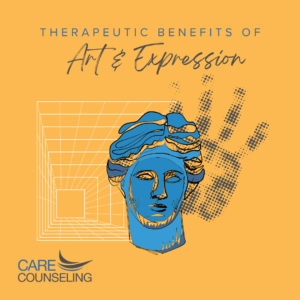Therapeutic Benefits of Art and Expression

The relationship between creativity and mental health has long intrigued researchers and artists alike. The act of creating art and expressing oneself through various forms of creativity has been found to have significant therapeutic benefits for mental well-being. In this blog post, we will delve into the intersection of creativity and mental health, exploring how art and expression can serve as powerful tools for healing, self-discovery, and emotional growth.
- Art as a Form of Self-Expression
Art provides a medium for individuals to express their thoughts, emotions, and inner experiences in a nonverbal and cathartic manner. Whether it’s painting, writing, sculpting, or playing music, creative expression allows individuals to communicate complex feelings that may be challenging to convey through words alone.
- Art Therapy: A Therapeutic Approach
Art therapy is a specialized form of therapy that harnesses the healing power of creativity to address various mental health challenges. Under the guidance of a trained art therapist, individuals can explore their emotions and inner world through artmaking, leading to enhanced self-awareness and personal growth.
- Stress Reduction and Relaxation
Engaging in creative activities can serve as a powerful stress reliever. When immersed in the creative process, the mind enters a state of flow, where worries and anxieties subside, promoting relaxation and a sense of calm.
- Emotional Release and Catharsis
Artistic expression enables individuals to release pent-up emotions and experiences that may have been suppressed. This process of emotional release can provide a sense of catharsis, leading to emotional relief and a renewed sense of clarity.
- Boosting Self-Esteem and Confidence
Completing a creative project, whether it’s a painting, poem, or piece of music, can foster a sense of accomplishment and pride. The act of creating something unique can boost self-esteem and confidence, promoting a positive self-image.
- Enhancing Problem-Solving Skills
The creative process often involves experimenting, exploring, and finding innovative solutions. Engaging in creative activities can enhance problem-solving skills, as individuals learn to think outside the box and approach challenges from different angles.
- Fostering Mindfulness and Presence
Artistic endeavors require individuals to be present in the moment, fully engaged in the creative process. This mindfulness practice can help individuals reduce rumination and focus on the present, promoting mental clarity and well-being.
- Coping with Trauma and Grief
For those dealing with trauma or grief, art therapy can provide a safe space to process complex emotions and experiences. Artmaking allows individuals to externalize their internal struggles, facilitating healing and resilience.
- Building Emotional Resilience
Creative expression can act as a buffer against stress and adversity, helping individuals develop emotional resilience and cope with life’s challenges in healthier ways.
- Encouraging Self-Discovery and Reflection
Through the creative process, individuals may uncover new insights about themselves and their emotions. Art can act as a mirror, reflecting aspects of the self that may have remained hidden or unexplored.
The intersection of creativity and mental health reveals a powerful avenue for healing, self-discovery, and emotional growth. Art and expression offer individuals a safe space to explore their thoughts and emotions, providing therapeutic benefits that enhance mental well-being. Art therapy harnesses the healing potential of creativity under the guidance of trained professionals.
Engaging in creative activities can reduce stress, foster mindfulness, and boost self-esteem. It enables emotional release, facilitates problem-solving, and builds emotional resilience. For those navigating trauma or grief, art can be a valuable tool for healing and finding inner strength.
Incorporating creativity into our lives, whether through art therapy or personal creative endeavors, allows us to embrace our emotions, explore our inner world, and embark on a journey of self-discovery. As we celebrate the powerful bond between creativity and mental health, let us recognize the transformative potential of artistic expression in nurturing our emotional well-being.



























